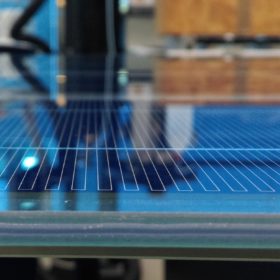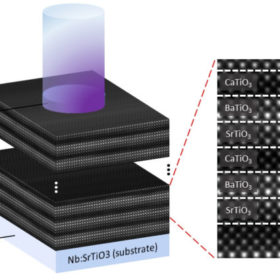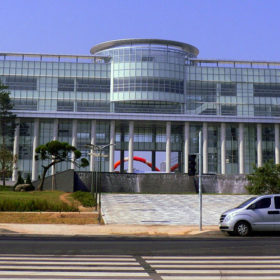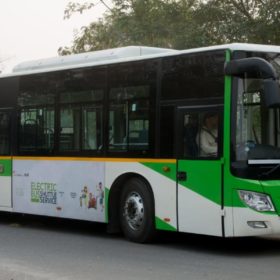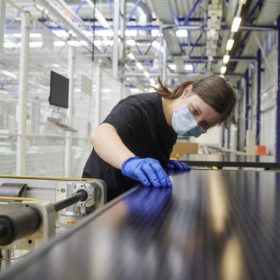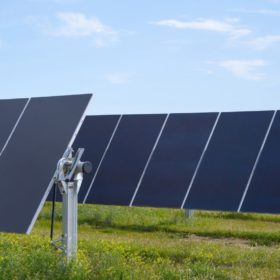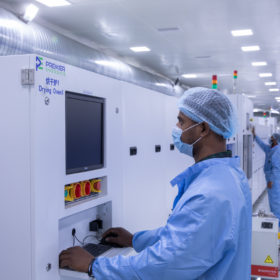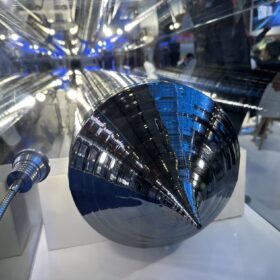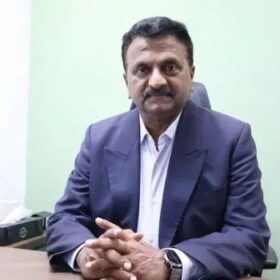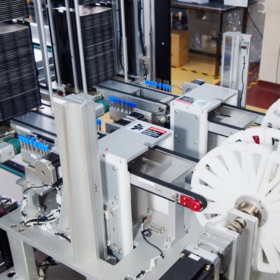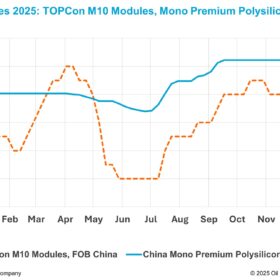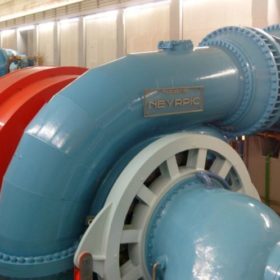The long read: The effects of perovskite solar cell defects
Mónica LiraCantú leads a research group investigating nanostructured materials for photovoltaic energy at the Catalan Institute of Nanoscience and Nanotechnology (ICN2). Recently, her group led a project that looked deep into the crystalline structure of a perovskite solar cell, revealing new information about the formation of defects in the material and how they could be engineered to improve both efficiency and stability. pv magazine caught up with the Barcelona-based scientist to discuss the state of the art in perovskite solar cells and remaining challenges on the road to commercialization.
New solar glass factory to come up in India
Auto glass producer Asahi India Glass and polyfilm maker Vishakha Group have teamed up to set up India’s largest solar glass plant in Gujarat. The factory is initially planned to have a capacity equivalent to 3 GW of solar installation per annum.
Crystal arrangement results in 1,000x more power from ferroelectric solar cells
German researchers developed a lattice arrangement of three different layers of ferroelectric crystals that created a powerful photovoltaic effect.
Four-terminal heterojunction perovskite tandem solar cell with 30.09% efficiency
Developed by a Vietnamese-Korean research group, the complex PV device was built with a bottom bifacial crystalline silicon perovskite-filtered heterojunction sub-cell that is able to absorb all solar spectra in the short-wavelength range.
EverSource-backed GreenCell to deploy 3,250 electric buses in three years
The company will initially launch 750 electric buses across key intercity and inter-state transit routes in Southern and Western India. To support the e-bus rollout, it is also building a captive charging infrastructure network across highways with 600 DC chargers of 180/240 kW capacity rating.
Meyer Burger plans to launch solar PV roof tiles in 2022
The Swiss group has acquired an integrated solar roof system solution from an unidentified German engineering service provider for this purpose. The aim is grow this sector from a niche market.
India offers fastest energy payback on silicon solar rooftop systems
The energy payback time of a silicon PV rooftop system mounted in India is only 0.44 of one year (160.6 days), compared to 0.53-0.67 year in Africa, 1-1.3 years in Europe, and 1.42 years in Canada, reveals a world map by German research body the Fraunhofer Institute of Solar Energy Systems (ISE). For the calculation, the report authors considered the installation used a typical, Chinese-made, 60-cell, PERC, 19.9%-efficient solar module.
The long read: What research is needed for the effective recycling of batteries?
With manufacturing ramping up year by year and policies already looking to get ahead of the large volumes of end-of-life products, the landscape for lithium-ion battery recycling is rapidly changing. pv magazine recently spoke with Mari Lundström, associate professor of chemical and metallurgical engineering at Aalto University, to find out what is needed on the research side for the effective recycling of batteries.
First Solar plans a 3.3 GW Indian module fab
The U.S.-based manufacturer is planning a vertically integrated thin-film solar module manufacturing facility in India. The factory will likely be built in Tamil Nadu and become operational in the second half of 2023.
Premier Energies unveils new solar facility
The Indian manufacturer has opened a new facility in Telangana with an annual cell and module production capacity of 750 MW.

